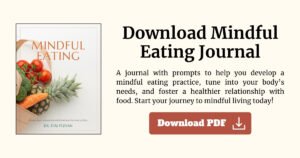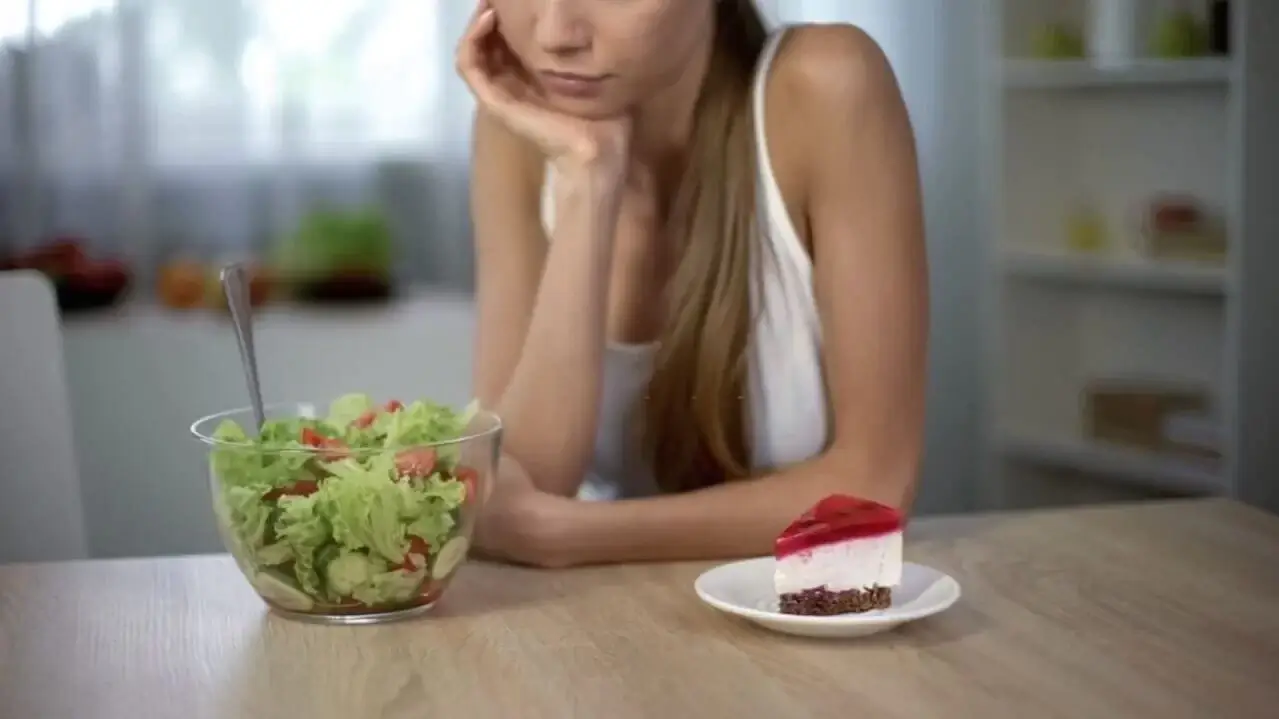Unconditional Permission to Eat… What?
For a mindful, intuitive eater, unconditional permission is about choice and self-trust. Decisions are anchored in attunement with our body’s hunger and fullness cues, awareness of our emotional needs, and a desire to truly nurture ourselves.
The autumn season is here. With it an increased flow of information on nutrition. Such as latest diets, cleanses, thin beauty ideals, and quick fixes for weight loss another measure of health and happiness.
Let me set the record straight. Following a rigid diet contrary to popular belief, does not promote a sustainable weight loss or maintenance nor body acceptance. Instead has been linked with weight gain, emotional distress, development of eating disorders, and more! Hence the obsession with being thin and constant restrictions towards better health, longevity, and happiness is simply flawed. Yep, you read it right!
But before you continue you might like to consider our free worksheet on exploring “Mindful Eating”. Please download this worksheet here.
Intuitive Eating
“So what’s the alternative?”, you might be wondering.
Well, during some recent research on women & food, I came across the work of two dieticians – Evelyn Tribole and Elyse Resch, who introduced me to the concept of Intuitive Eating (IE). The IE philosophy rejects the quick-fix promises and re-teaches us to regulate our behavior around food by listening to our body’s cues. IE is based on ten principles, namely:
- reject the diet mentality;
- honor your hunger;
- make peace with food
- challenge the food police;
- feel your fullness;
- discover the satisfaction factor;
- cope with your emotions without using food;
- respect your body;
- exercise – feel the difference;
- honor your health – gentle nutrition
From the ten principles of IE, rejecting the dieting mentality and giving oneself unconditional permission to eat is often the most complex one to accept. Many fear that not restricting certain foods, may result in a loss of control and overindulgence on unhealthy food, however, scientific literature shows the opposite to be true. An IE pattern has been found to improve health markers and the overall quality of food consumed (Van Dyke & Drinkwater, 2014).

Many studies have shown that individuals who rely on external restrictions are more likely to eat when not hungry or eat to soothe negative emotions (Birch, Fisher, & Davison, 2003; Van Diest & Tylka, 2010; Scaglioni, Salvioni, & Galimberti, 2008). These results are consistent with research pointing out that humans are born with the innate aptitude to use hunger and satiety cues to adjust food intake.
A toddler, for instance, is a naturally intuitive eater, namely, he/she eats when hungry and stops when full (Fomon, 1993). Similarly, other studies (e.g. (Birch & Fisher, 1998) found that young children can self-regulate food consumption according to their physiological needs providing their natural cues have not been overruled by the child’s parents.
Unfortunately, once individuals start to rely too much on external cues (i.e. scheduled meal times, portion sizes, etc.) or non-physical cues (i.e. eating to satisfy emotional distress) to regulate caloric intake, the innate ability to listen and act according to the body’s signals fades away.
Why is all of this important? Because the diet mentality leads you to the path of the “all or nothing” kind of thinking. Diets can turn you into the perfectionist who follows all the rules rigidly and then goes into full-on “screw it” mode when you stop seeing the desirable outcome (ie weight loss).
I hope reading this article will empower you to take back control over your life and start listening to your body instead of to external sources. Nutritional advice, tips from friends, experimenting – that’s all great and it can give you a structure, but ultimately you will need to start listening to your own body’s cues and respect those.
I know what you’re thinking… why is she writing this? Doesn’t she advocate for an ancestral type of diet? Yes, you’re right. You could say my way of eating is guided by principles of Primal lifestyle (or diet, whatever you call it). The truth is that locally sourced whole foods make me feel my best. So this way of eating is freeing and comes naturally to me.
So, yes, although, whenever I can I avoid gluten, polyunsaturated oils, refined sugar, GMO, and conventionally raised animals. If I want to have a dessert made of all of the “non-food” ingredients, I will have it! I won’t think twice about it and will not feel guilty about it afterward. Why? Because the all-or-nothing mindset of eating “perfectly”, or having a “cheat date” once in a while doesn’t work. The truth is that not every single food choice has to be of the highest nutritional benefit. The “healthier” foods should never be chosen out of obligation but the internal cues to eat food the body desires.
If you’re one of my friends, you might think, “hold on don’t you usually say to NO to bread, pizza, pasta, cookies, cakes, and so on?”. Yes, you’re right – I do. Does not this mean that when I say NO to that freaking cake or that glass of wine at a party I restrict myself? NO. It simply means that eating a cake doesn’t make me feel good afterward and I can simply not have it or take a bite and decide that it’s not worth eating.
When it comes to pizza, chips, or other popular types of foods of that I like, I simply don’t like them. These foods were never my favorite. And if the conventional dieting Food Police have a problem with that, then so be it (their problem, not mine ;). To end this rant, I suppose you could pigeon-hole me into both the Primal and Intuitive Eater type of category.
However, please be careful in labeling yourself and others as one type of eater. Whether it is Paleo, Primal, Vegan, Vegetarian, Carnivore, or Keto. Because the moment you put labels on a way that you eat it gets dangerous. There is no room for error.
To give ourselves unconditional permission to eat, is not to say that we can eat whatever, whenever and however much we want mindlessly. It’s that we can eat whatever, whenever and however while practicing attunement. We make peace with food AND honor our hunger and fullness.
If you’re ready to embrace a more balanced and intuitive approach to eating, download our free ‘Mindful Eating Workbook’ and start listening to your body’s cues today.





